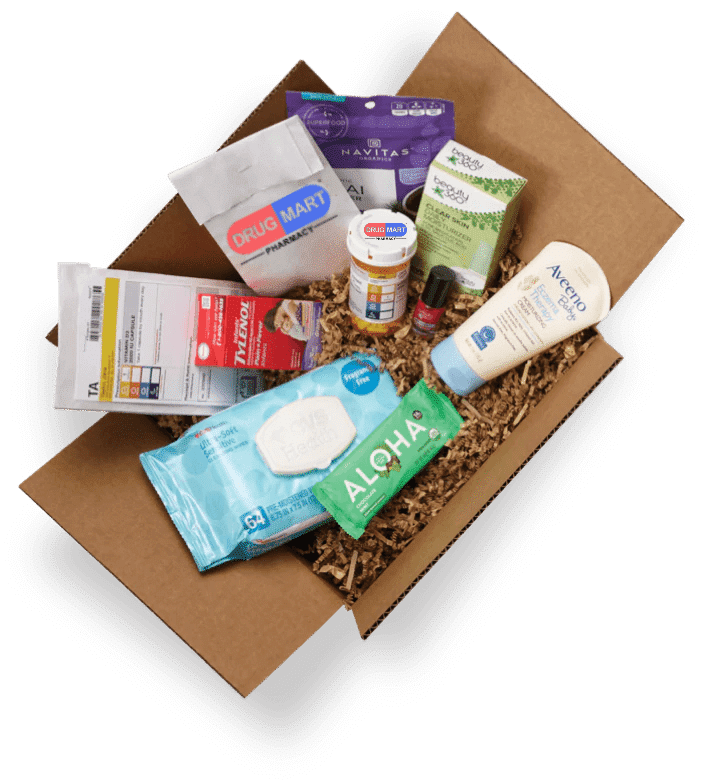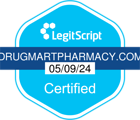In today's world, prescription medications can be quite expensive, and it's no surprise that many people are looking for ways to save on their prescriptions. Pharmacy discount cards, also known as Rx savings cards, are one popular option that patients turn to in hopes of reducing their out-of-pocket expenses. However, as the saying goes, "there's no such thing as a free lunch," and this certainly applies to pharmacy discount cards. In this blog post, we'll take an in-depth look at how these cards work and discuss why trusting your local pharmacist, like the caring and knowledgeable staff at Drug Mart Pharmacy, is a better way to save on prescription costs.
Understanding Pharmacy Discount Cards
Pharmacy discount cards are offered by companies like GoodRx, SingleCare, and many others. These companies partner with big-box pharmacies to negotiate lower prices on medications, often with the help of pharmacy benefit managers. They then market these discounted prices to consumers in order to drive traffic to their partner pharmacies. When a customer uses one of these cards, the discount card company receives a small percentage of the sale, leaving little to no profit for the pharmacy.
While this arrangement may seem like a win-win for both the consumer and the big-box pharmacy, there are several downsides to using pharmacy discount cards that you should be aware of.
1. Privacy Concerns
Pharmacy discount card companies are not subject to the same privacy standards as healthcare providers, which means they can legally share and sell your personal information. In fact, many of these companies rely on revenue generated from selling this data.
Back in February 2020, Consumer Reports released a shocking article that exposed privacy concerns with the popular prescription discount company GoodRx. Consumer Reports had discovered that GoodRx was selling users’ personal information to Google, Facebook, and other major companies – troubling news given the sensitive nature of medical information. After the article was published, GoodRx swiftly announced they would stop sharing personal medical information with Facebook, appointed a new vice president of data privacy, and gave users improved privacy features. Although these changes were a step toward better user privacy in the prescription discount industry, there is still a lot of work to be done. Because these companies are direct-to-consumer, they are not subject to the privacy standards of the Health Insurance Portability and Accountability Act (HIPAA) and are therefore legally allowed to share and sell users’ personal information. In fact, many of these companies depend on the money they make from selling this data.
Pharmacies, on the other hand, are subject to HIPAA privacy standards. So when you purchase a prescription through Drug Mart Pharmacy without using one of these discount cards, either via insurance or out-of-pocket, you can rest assured that all of your information will be safe.
2. Limited Savings
Although pharmacy discount cards can provide significant savings on certain medications if the card is used at chain pharmacies, they don't always offer the best price. If you have existing health insurance, the insured price for your medication may be cheaper than the "discounted" price offered by the discount card. Additionally, these cards only cover specific medications, which can leave uninsured patients with no savings on the prescriptions they need.
Pharmacy discount card companies often advertise significant savings on prescription medications by comparing their discounted prices to the extremely high, over-inflated prices charged by chain pharmacies. This practice can be misleading to customers who may believe they are saving more than they actually are.
In reality, if patients take the time to shop around or simply patronize a pharmacy built on trust, like Drug Mart Pharmacy, they are more likely to save money on their prescriptions. Moreover, by choosing a trusted local pharmacy, they can ensure they receive personalized care and attention, which is often lacking in larger chain pharmacies.
3. Impact on Local Pharmacies
Pharmacy discount cards have a negative impact on independently owned pharmacies, as these businesses often cannot afford to lose money or break even on prescription sales. By using a pharmacy discount card, you may inadvertently be supporting big-box pharmacies at the expense of local, community-based businesses like Drug Mart Pharmacy.
Alternatives to Pharmacy Discount Cards
While pharmacy discount cards can sometimes provide savings when used at over-priced chain pharmacies, there are alternative ways to save on prescription medications that do not come with the same drawbacks. Your local pharmacist at Drug Mart Pharmacy can help you explore these options, which may include:
- Comparing the cost of the same medication at Drug Mart Pharmacy versus using the discount card
- Choosing generic medications instead of brand-name drugs when possible
- Discussing alternative medications with your healthcare provider that may be less expensive but just as effective
- Enrolling in manufacturer's assistance programs for certain medications
- Utilizing manufacturer coupons to save money
- Taking advantage of drugstore loyalty programs and other in-store savings opportunities
Trust Your Local Pharmacist for Savings

Instead of relying on pharmacy discount cards, consider turning to your local pharmacist for guidance on saving money on your prescriptions. At Drug Mart Pharmacy, our caring and knowledgeable staff is committed to providing the highest quality service with integrity and compassion. We work closely with our patients to find the best prices on their medications and offer alternative options when possible.
While pharmacy discount cards may seem like a great way to save on prescription costs, they come with hidden costs, including reduced privacy and a negative impact on local pharmacies. Because these coupons are free to the end user, Rx discount companies have to find other ways to make money. Sometimes, this means selling the personal information of coupon users to third-party companies (usually for the sake of advertising and research); and almost all the time, this means taking a percentage of the profit from pharmacies each time a coupon is used to buy a prescription, leaving little to no profit.
Instead of relying on these cards, trust your local pharmacist at Drug Mart Pharmacy to help you find the best prices on your medications. Our experienced staff is dedicated to providing personalized care and ensuring that you receive the best possible service. Remember, when it comes to your health, trust the advice of professionals who truly care about your well-being.




.svg)
.svg)








